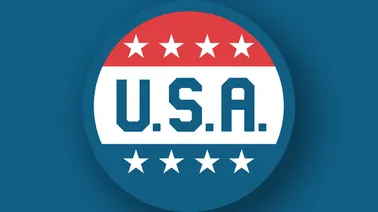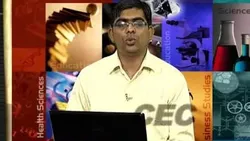
US Public Policy: Social Economic and Foreign Policies 
This course examines the public policies of the United States, including social, economic, and foreign policies. It explores how the executive branch directs the federal government to address a range of issues, from the environment to the economy. The impact of these policies on social, economic, and foreign issues is also discussed. ▼
ADVERTISEMENT
Course Feature
![]() Cost:
Cost:
Free
![]() Provider:
Provider:
Edx
![]() Certificate:
Certificate:
Paid Certification
![]() Language:
Language:
English
![]() Start Date:
Start Date:
Self paced
Course Overview
❗The content presented here is sourced directly from Edx platform. For comprehensive course details, including enrollment information, simply click on the 'Go to class' link on our website.
Updated in [March 06th, 2023]
This course provides an overview of US public policy, including social, economic, and foreign policies. It examines the intersection of religion and politics, and how issues such as abortion and same-sex marriage have played out in the political arena. It also covers fiscal, monetary, welfare, and income policy, as well as partisan divisions over regulatory policy. Additionally, the course traces the evolution of America’s position as a trading nation by examining trade agreements like NAFTA and the TPP. Finally, it serves as an overview of American government, concentrating on overarching tendencies such as its fragmented power structure. Examples such as the 2008 economic downturn and climate change will be used to illustrate the wide-ranging effects of public policy.
[Applications]
Upon completion of this course, students will be able to apply their knowledge of US public policy to analyze current events and debates. They will be able to identify the various policy tools used by the government and understand the implications of those policies. They will also be able to identify the various political divisions that arise from different policy decisions and understand the basis for those divisions. Finally, they will be able to trace the evolution of America’s position as a trading nation and analyze the effects of trade agreements on the US economy.
[Career Paths]
1. Public Policy Analyst: Public policy analysts are responsible for researching, analyzing, and evaluating public policy issues and making recommendations to government officials. They must be knowledgeable about the current political climate and have an understanding of the economic, social, and political implications of policy decisions. They must also be able to communicate their findings effectively to decision makers. As public policy becomes increasingly complex, the demand for public policy analysts is expected to grow.
2. Political Strategist: Political strategists are responsible for developing and implementing strategies to help their clients win elections or pass legislation. They must be knowledgeable about the political process and have an understanding of the current political climate. They must also be able to develop effective strategies to reach their goals. As the political landscape becomes increasingly complex, the demand for political strategists is expected to grow.
3. Lobbyist: Lobbyists are responsible for representing the interests of their clients to government officials. They must be knowledgeable about the political process and have an understanding of the current political climate. They must also be able to effectively communicate their clients’ positions to decision makers. As the political landscape becomes increasingly complex, the demand for lobbyists is expected to grow.
4. International Relations Specialist: International relations specialists are responsible for researching, analyzing, and evaluating international relations issues and making recommendations to government officials. They must be knowledgeable about the current political climate and have an understanding of the economic, social, and political implications of policy decisions. They must also be able to communicate their findings effectively to decision makers. As international relations become increasingly complex, the demand for international relations specialists is expected to grow.
[Education Paths]
1. Bachelor of Arts in Public Policy: A Bachelor of Arts in Public Policy is a degree program that focuses on the study of public policy and its impact on society. Students learn about the history and development of public policy, the role of government in policymaking, and the various methods used to analyze and evaluate public policy. This degree program also covers topics such as economics, political science, and public administration. This degree is ideal for those interested in pursuing a career in public policy, government, or public service.
2. Master of Public Policy: A Master of Public Policy is a degree program that focuses on the study of public policy and its impact on society. Students learn about the history and development of public policy, the role of government in policymaking, and the various methods used to analyze and evaluate public policy. This degree program also covers topics such as economics, political science, and public administration. This degree is ideal for those interested in pursuing a career in public policy, government, or public service.
3. Doctor of Philosophy in Public Policy: A Doctor of Philosophy in Public Policy is a degree program that focuses on the study of public policy and its impact on society. Students learn about the history and development of public policy, the role of government in policymaking, and the various methods used to analyze and evaluate public policy. This degree program also covers topics such as economics, political science, and public administration. This degree is ideal for those interested in pursuing a career in public policy, government, or public service.
4. Master of Science in Public Policy Analysis: A Master of Science in Public Policy Analysis is a degree program that focuses on the study of public policy and its impact on society. Students learn about the history and development of public policy, the role of government in policymaking, and the various methods used to analyze and evaluate public policy. This degree program also covers topics such as economics, political science, and public administration. This degree is ideal for those interested in pursuing a career in public policy, government, or public service.
The degree paths recommended for learners of this course are Bachelor of Arts in Public Policy, Master of Public Policy, Doctor of Philosophy in Public Policy, and Master of Science in Public Policy Analysis. These degree paths provide learners with the knowledge and skills necessary to understand and analyze public policy, as well as the ability to develop and implement effective public policy solutions. The development of public policy is an ever-evolving field, and these degree paths provide learners with the opportunity to stay up-to-date on the latest trends and developments in the field.
Course Provider

Provider Edx's Stats at AZClass
US Public Policy: Social Economic and Foreign Policies explores public policy in the United States, including social, economic, and foreign policies. Learners can gain a comprehensive understanding of American public policy through this course. They will learn about the various social, economic, and foreign policies that affect the USA government and its actions. They will explore the intersection of religion and politics, and how issues such as abortion and same-sex marriage are being addressed in the political arena. They will also learn about fiscal, monetary, welfare and income policies, and the tools used to implement them.
Discussion and Reviews
0.0 (Based on 0 reviews)
Explore Similar Online Courses

Scripting practices with Python and Blender

Learn 3D Modeling: Blender Basics in Under 2 Hours

Python for Informatics: Exploring Information

Social Network Analysis

Introduction to Systematic Review and Meta-Analysis

The Analytics Edge

DCO042 - Python For Informatics

Causal Diagrams: Draw Your Assumptions Before Your Conclusions

Whole genome sequencing of bacterial genomes - tools and applications

The Ideal of Self-Governance: Public Policy Beyond Markets and States

Public Administration


Start your review of US Public Policy: Social Economic and Foreign Policies